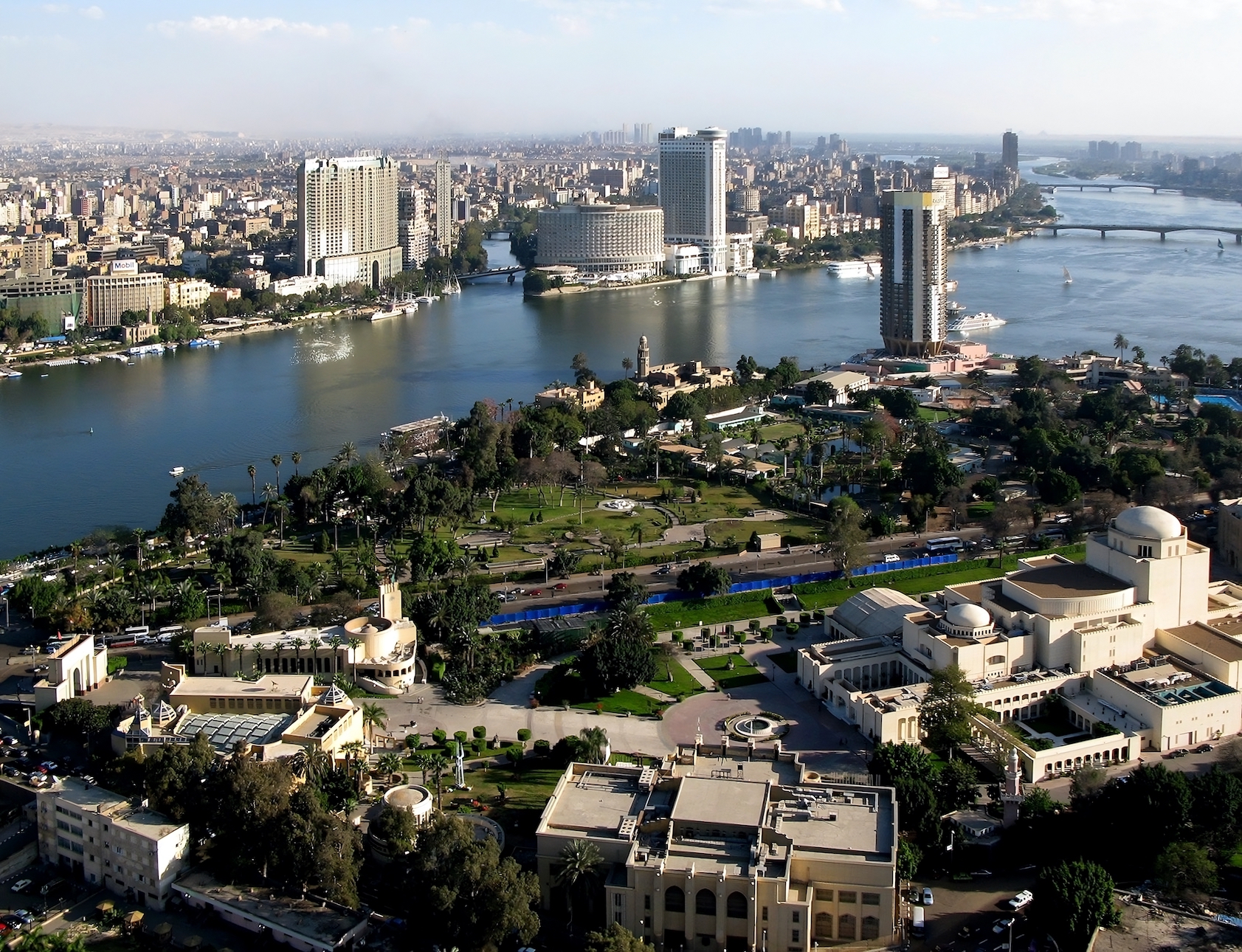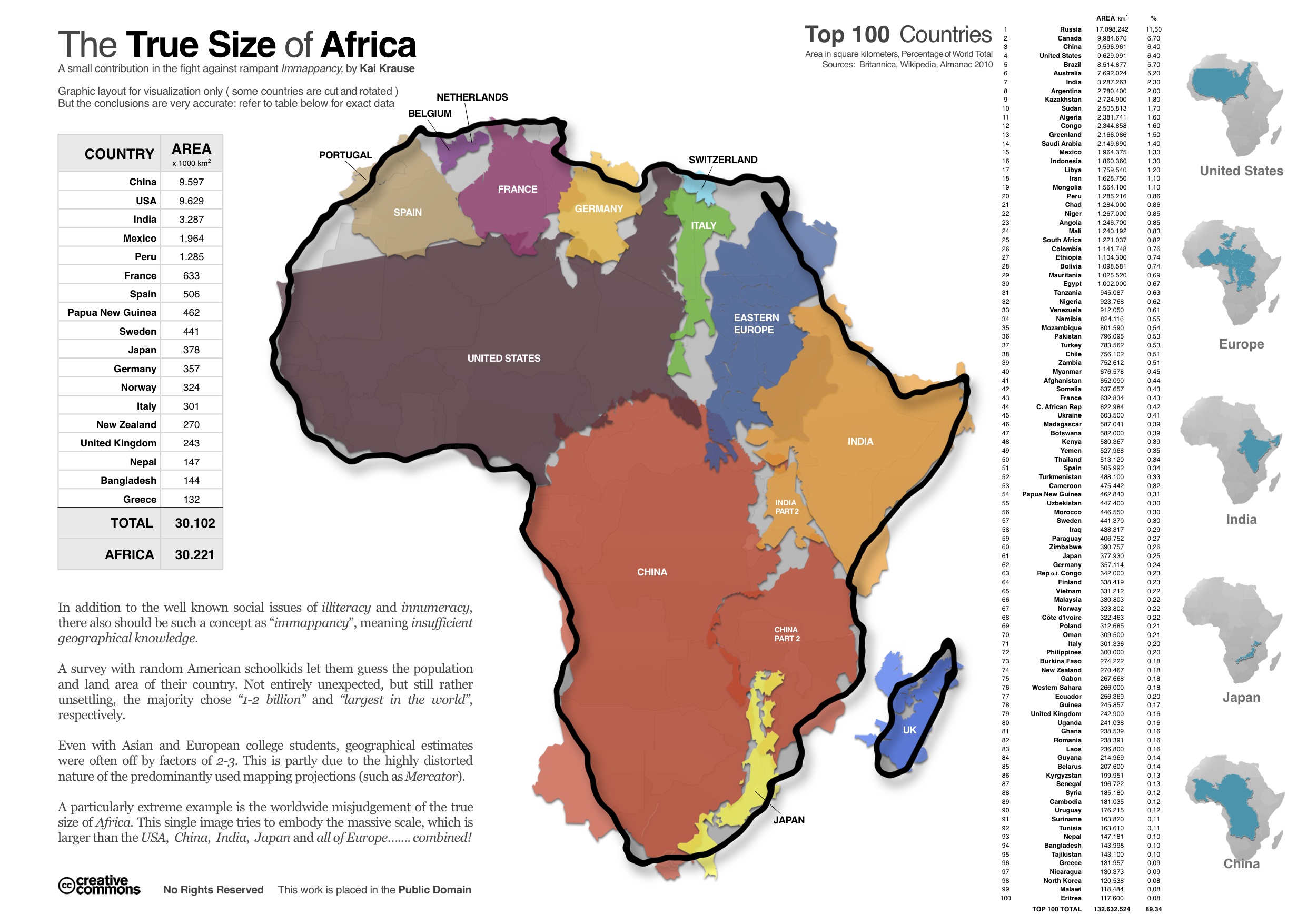Without a doubt, the United States of America is one of the most highly developed countries worldwide. In 2014, it was ranked 8th for highest Human Development Index (HDI) and first in Gross Domestic Product (GDP). In other words, most Americans have a high quality of life compared to the rest of the world. Americans, however, have a tendency to misinterpret or exaggerate the lack of quality of life for those living in less fortunate countries. Most commonly, are misconceptions relating to Africa and its development; many of us have the conception that the entire continent of Africa is a continent of poverty and famine. However, Africa is an immense continent, and these are severe generalizations.
This image can be used to put things into perspective in regards to the sheer size of Africa. Africa is the second largest continent in the world, and encompasses countries such as Libya and Algeria, both fairly developed countries bordering the Mediterranean Sea. Sweeping generalizations relating to the entire continent are common and devalue the continent. I feel that media plays a significant role in these broad generalizations.
Many of us perceive news and media to be a type of authority source, in the sense that we put a level of trust into them and their information. As a result, a type of authority appeal fallacy is created, and proliferated with an appeal to majority: everyone sees this and so everyone will begin to think in his way.
Videos like the first, while optimistic in its presentation, also presents Africa as poverse, with famine, disease, and child abuse. The video does little to draw attention to specific countries or regions that are facing poverty and famine. Similarly, the melancholic second video paints Africa in a similar light. We are inundated with media relating to African conflict, poverty, famine, and disease, and so we pay little attention to the advances in African development. Major cities such as Cairo (Egypt) and Cape Town (South Africa) serve as sparkling examples of such developed parts of Africa.
 |
| Port of Cape Town |
 |
| Cairo |
Africa is an incredibly large continent, with incredible levels of diversity. As a result of the diversity, and our own cultural bias, I do not think that the misconceptions can necessarily be eradicated. However, I do feel that they can be minimized, both in part by media producers, as well as audiences. Media needs to draw emphasis on specific countries and geography when discussing the continent of Africa, especially when poverty and famine is a topic. Audiences need to preserve a broader perspective when consuming media, that is, they need to keep in mind the size and diversity of Africa.

Excellent post. There are a few fallacies bubbling up here. One could be hasty generalization, often used when "charities" are trying to capture viewer's attention and wallets. Then there is the "appeal to emotion" that has a part in this fallacy, too. Finally, note that you and I don't feel this way...so is this an "American fallacy"? or more of a fallacy that preys on anti-intellectualism?
ReplyDelete